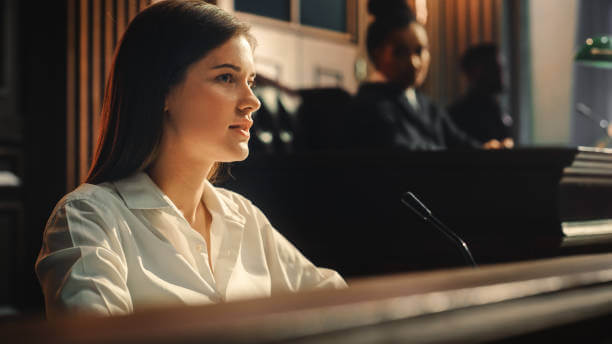
In New York, a defendant in a state criminal case has the opportunity and right to testify. In nearly all cases there are charges presented to the grand jury, a defendant has the right to testify before the grand jury. The issue hinges on whether the defendant must notify the prosecution, or whether the prosecution must notify the defense. The issue depends on the status of the case in the lower court. Before deciding to testify before the grand jury, the defendant should have a discussion with a competent NY criminal lawyer.
NY CPL 190.50(5)(a) states that prosecution is required to provide notice of the grand jury proceeding when there is a charge that is brought in the local criminal court, and when the charge is “currently undisposed of.” A “currently undisposed of” case is where the defendant has not been held for a grand jury action after the preliminary hearing. After the hearing, the felony complaint is disposed of and the prosecution is therefore required to give notice. A prosecutor may submit a case to the grand jury right after arrest and before arraignment. This would not violate the defendant’s right to testify.
When the case has left the lower court, the obligation to notify is then reversed. It is then the defendant’s obligation to notify the prosecution of the defendant’s intent to testify. In certain jurisdictions, the district attorney’s office will send notice in every case. This action by the district attorney’s does not relieve the defendant’s obligation to notify the prosecution in the event the defendant wants to testify.
Once the defendant has give the prosecution timely notice prior to the prosecution presentation of evidence and prior to the grand jury vote on the indictment, the defendant is entitled to testify.
It is important to note that the defense counsel should provide the prosecution with a written request to testify at the grand jury, when the proceeding is still in local court. This should be done regardless of whether the defendant decides to testify at the grand jury later on. Submitting the request to testify in the lower will preserve the defendant’s right and ability to be informed.
If the defendant timely seeks to exercise the right to testify at the grand jury, the time is chargeable to the prosecution for speedy trial purposes. If the defendant seeks to delay the presentation of the case to determine whether or not to testify, that time is not chargeable to the prosecution for speedy trial purposes. The prosecutor may choose to use the fact that the defendant is testifying as an opportunity for discovery. It may be a tactic for the prosecution to get the defendant to formalize and state on the record what happened. Due to this the prosecutor may use the defendant’s testimony to delve into inconsistences with the defendant’s prior statements. The defendant’s grand jury testimony may be used at trial as an admission or used to impeach testimony made at trial.
At the grand jury presentation, if a defendant choses to testify, the defendant must first give an unstructured narrative of events. It is vital for the defense to go over the testimony’s talking points extensively before the defendant gives his narrative. Depending in what the defendant states, the prosecutor may ask a series of questions that lead the defendant to make unfavorable statements. It is important for the defense to anticipate what possible questions the prosecutor may ask. The defendant should state unequivocally their innocence in their grand jury testimony. The defendant and their counsel should prepare a list of talking points to the grand jury. This testimony is also a chance for the defendant to make their side of the events heard, unstructured and undisturbed.
Any statements that the defendant has given to the police, an exculpatory statement to the police, should be considered by the grand jury. The defense should request this especially if the prosecution asks the defendant questions based on these statements to the police. The “rule of completeness” grants the defendant this request.
These are the basics of a defendant’s right to testify in a grand jury, and possible practice tips for the defense to anticipate. There are also several other scenarios outside the scope of these basics.
The NYC criminal attorneys with Norman Spencer Law Group represent clients charged with criminal offenses in New York City. We have built a reputation a solid track record of defending the toughest criminal cases. Call us today to set up a consultation.